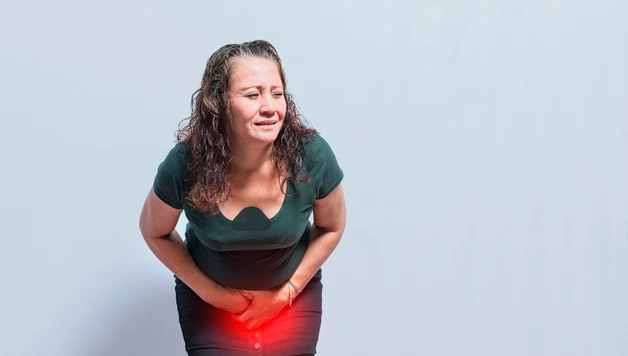Key Takeaways:
- Menopause may be responsible for urinary incontinence in women.
- Hormonal changes during menopause can weaken the pelvic floor muscles, leading to urinary incontinence.
- Lifestyle changes and exercises like Kegels can help manage urinary incontinence during menopause.
- Medical advice and support are essential for personalized treatment options and effective management.
Are you experiencing urinary incontinence? Have you ever wondered if Menopause could be related to this condition? The involuntary leakage of urine, can be a distressing issue that affects many women. This article explores the connection between urinary incontinence and Menopause, shedding light on why this condition may occur. Ultimately, we’ll discuss how this can be addressed through treatment options.
Urinary Incontinence and Menopause: Understanding The Connection
To understand how urinary incontinence and Menopause are related, let’s take a closer look at both. Moreover, we’ll get to know about the impact of Menopause.
Understanding Urinary Incontinence:
Urinary incontinence refers to the unintentional release of urine, which can happen during everyday activities such as coughing, laughing, or exercising. It is important to note that incontinence is not a normal part of ageing. It can be effectively managed and treated. Many factors can contribute to the factor. One of them is the hormonal changes that occur during Menopause.
The Impact of Menopause on Urinary Incontinence:
Menopause is an experimental phase in a woman’s life when her menstrual cycles end. Menopause, characterized by a decline in estrogen and progesterone hormone production, typically happens between ages 45 and 55. These hormonal changes, including the urinary system, can affect a woman’s body.
Hormonal Changes and Urinary Incontinence:
The hormonal changes in Menopause can impact the urinary tract tissues as estrogen levels decline. Estrogen is vital for preserving the health and flexibility of the urethra and its surrounding muscles. When estrogen levels decrease, these tissues can become weaker and less able to control urine flow effectively. As a result, urinary incontinence can occur.
Types of Urinary Incontinence:
There are primarily two different types of incontinence that women may experience during Menopause. The two most common types are
Stress incontinence
Stress incontinence occurs when pressure is exerted on the bladder, such as during coughing, sneezing, or physical activity.
Urge incontinence
A sudden and strong urge to urinate, often leading to leakage, is called urge continence.
Other Contributing Factors for Urinary Incontinence:
While hormonal changes are a significant factor, other factors can also contribute to incontinence during Menopause. These factors include :
Weakened Pelvic Floor Muscles:
The pelvic floor muscles uphold the bladder, uterus, and rectum. They are vital in controlling urination by contracting and relaxing to allow or prevent urine flow. As women age, the pelvic floor muscles may weaken due to childbirth, obesity, and a sedentary lifestyle. Weakened pelvic floor muscles can contribute to incontinence by reducing the ability to control the bladder effectively.
Obesity:
Excess weight and obesity can put added pressure on the bladder and pelvic floor muscles. This increased pressure can weaken the muscles, leading to incontinence.
Additionally, obesity is often associated with hormonal imbalances and other health conditions that can contribute to urinary problems.
Chronic Cough:
Persistent coughings, such as that caused by conditions like chronic bronchitis or asthma, can strain the pelvic floor muscles. The repeated pressure from coughing can weaken the muscles over time and result in urinary incontinence. To effectively manage or prevent incontinence, it is crucial to understand the primary cause of the cough.
Certain Medications:
Some medications, such as diuretics (water pills), sedatives, muscle relaxants, and certain antidepressants, can affect bladder function and contribute to incontinence. These medications may increase urine production, relax the bladder muscles, or interfere with nerve signals that control urination. If incontinence develops after starting a new drug, discussing it with a healthcare provider is essential.
Urinary Tract Infections (UTIs):
UTIs can cause temporary urinary incontinence, especially in menopausal women. Infections in the urinary tract can irritate the bladder and increase the urgency and frequency of urination. In some cases, UTIs can cause temporary loss of bladder control. Treating the infection with antibiotics usually resolves the incontinence symptoms.
Considering these factors is crucial when seeking treatment or management strategies for incontinence during Menopause.
Seeking Help and Treatment Options:
If you are experiencing incontinence during Menopause, it is crucial to consult a doctor. They can evaluate your symptoms, perform necessary tests, and provide appropriate treatment options. Treatment may include:
Medications –
There are medications for incontinence, such as anticholinergics and mirabegron. Medications work by relaxing the bladder muscles or tightening the muscles around the urethra to prevent urine leakage. But it’s essential to consult a healthcare professional for the correct prescription.
Surgery-
Surgery for urinary incontinence can provide significant help by addressing the underlying structural issues causing the incontinence. It can make a big difference in controlling the bladder and improving life for people who haven’t found enough relief with other treatments.
Managing Urinary Incontinence:
While treatment options are available, you can also take practical steps to manage urinary incontinence daily.
Pelvic floor exercises-
Pelvic floor exercises target the muscles that control urination, strengthening and improving their ability to hold urine.
Lifestyle Modifications
Healthy weight and avoiding bladder irritants like caffeine and alcohol are vital for managing urinary incontinence. Moreover, establishing a regular bathroom schedule can also be beneficial. Using absorbent products, such as pads or protective underwear, can provide reassurance and help manage any leaks that may occur.
Urinary incontinence can be tough and embarrassing for women during menopause, but it’s important to know it’s not something that has to happen. By learning about the connection between menopause and urinary incontinence, getting help, and trying different treatments, women can manage and overcome this condition. Remember, you’re not alone; with support, you can live your life to the fullest.









